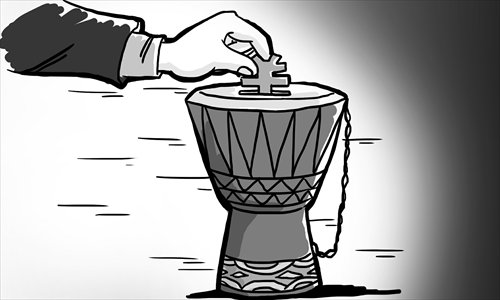Authorities should protect fates of Chinese investors in Africa

The coming of China in Africa has sent shock waves across the globe. The ripples have been felt as far as the US and Europe.
The existing powers have "warned" Africa of the risks it faces if it allows the Asian dragon to exploit the resources with which it is endowed.
Indeed, Washington has carried out diplomatic shuttles, through US Secretary of State Hillary Clinton, across Africa, with a silent intent of curtailing China's growing presence. In Addis Ababa, Ethiopia, Clinton called on US companies to be more vigilant in creating broad-based economic growth for Africa.
She was quoted as saying in Senegal that "the days of having outsiders come and extract the wealth of Africa for themselves, leaving very little behind, should be over." Due to China's entry, the rigid prerequisites once attached to any kind of support for Africa from the EU and US are fast fading.
In Kenya, talk of China elicits sweet memories of the Thika super highway, a world class stretch of road that was constructed by China. It is part of the African Development Bank road project, 30 percent funded by China, and aimed at linking Northern and Southern Africa.
Today, the Republic of Angola has become a strategic partner, receiving a huge chunk of Chinese investment. This has been pegged on Angola's central location. Angola, too, has huge oil deposits.
But even with these huge investment in a once despised continent, there are clear signals that not only the US and EU are uncomfortable with these strides. Africa, too, is continuously questioning China's commitment to its long-term development. This was brought to the fore after the killing of a Chinese manager by miners in Zambia in early August over wages.
China's move to enter into small and medium-sized enterprises has raised eyebrows. Initially, the unanimous assumption was that China would pump resources only where Africa had little or no capacity. This included resource-heavy sectors such as mining, construction and manufacturing. But China's venture in Africa has been complicated more by reputation for fake products that the country continues to suffer globally.
In Africa, me-too mobile phones, made in China, continue to flood shops, with consumer welfare groups claiming that the goods do not meet market standards.
Across the continent, Chinese investments are being harassed, maimed or even killed by authorities and civilians. Asian investors are also forced to give out bribes, in a bid to win public support. With the increasing hostility on the ground coupled with underhanded but intense competition from the US and EU, which way is China likely to take?
There are a number of ways China's investment could still find fertile grounds.
The most remote possibility is seeing the investment heading back to China. Already, the opportunities available in China are scanty. Its population, too, is almost hitting the rooftop, and its resources are stretched.
The massive rise of heavy industry in China means it has to expand its energy sources. This is the principal reason it has to look beyond its national borders for opportunities.
But Africa needs China, just as China needs Africa. Africa's sluggish growth in the last few decades have been as a result of poor roads, inaccessibility to affordable energy sources and lack of access to finances. China promises all these, with little or no conditions attached.
To reduce the friction China currently is experiencing with Africa, it is critical that China enters into strategic partnerships with local players, as has been witnessed in the two-year construction of the Thika super highway. This may also entail making use of local skills in day-to-day activities.
A very similar model has already been put into play in East Africa where China has swiftly moved to spur regional integration through investment in roads, bridges and energy projects in Tanzania, Uganda, and the Democratic Republic of the Congo, among other economies in the five-member East African Community.
Another step the world's economic superpower could pursue as it intensifies its presence in Africa is identifying friendly nations.
Zimbabwe, the most conspicuous ally, is one of the safe havens the Asian nation could put its investment. It has huge deposits of minerals, massive arable land that is under-utilized, as well as reserves of talent, with one of the highest literacy rates in Africa. This is the right time for China to change Africa, for good.
The author is a journalist on African issues based in Nairobi, Kenya. mkapchanga@gmail.com